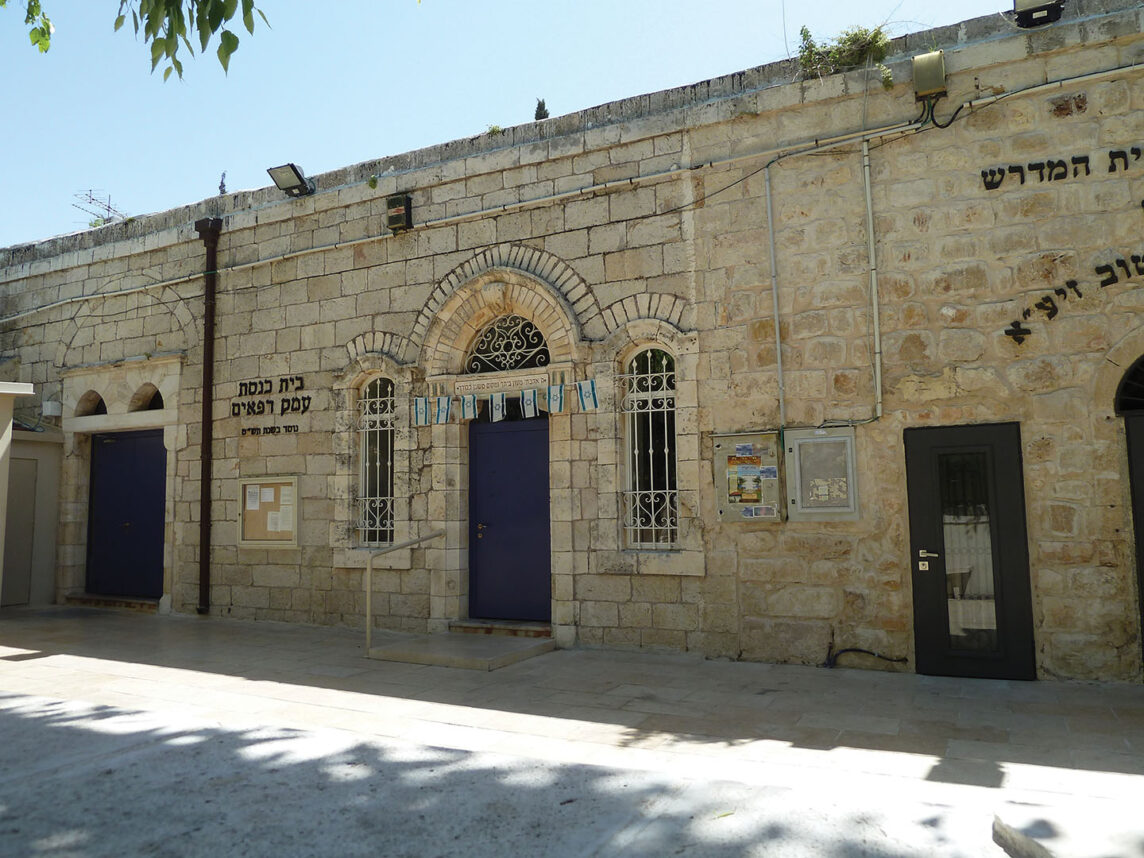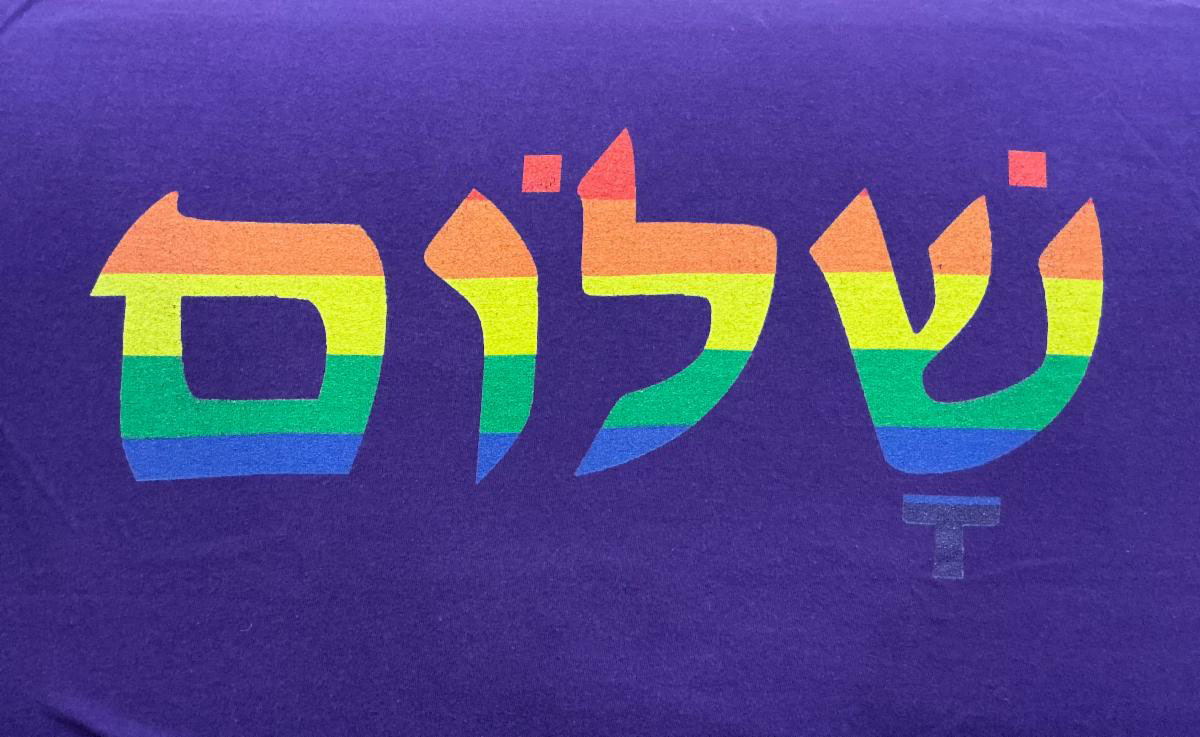
Banning the covenant between
Almighty God and Jews He chose,
on Abraham extremely keen,
is what some Germans now propose.
They don’t explicitly intend
to ban the covenant, but just
the ancient means towards its end,
which signifies: “In God Jews trust.”
The means, which is of course the bris,
is as important as the end;
without the means the Jews would miss
the link with Abraham, God’s friend,
as in Isaiah he’s described.
With circumcision Jews affirm
this friendship won’t be circumscribed,
for it is far more than long term.
Eternal, it should not be banned,
especially not by the Germans.
When, aged eight days, male Jews are manned,
this process is not based on sermons,
but on the circumciser’s knife,
ensuring that the small one will
be great, a Jew for all his life,
on a steep path that climbs uphill.
The ritual is not mere removal
of foreskin, but an affirmation
of all the celebrants’ approval
of the choice of Jewish nation
made for Jewish boys before
they learn of God’s still stranger choice—
the Jews — and in their law and lore
they, just like Abraham, rejoice.
The covenant was reaffirmed
by God who broke a vav to pieces
in shalom, as if He had squirmed
about the way peace always ceases,
when giving Pinhas, with a broken
letter, Covenant for Peace,
as if to gift him with a token
for what no one can buy, the lease
for peace, yet destined to expire.
About this promised peace the cov-
enant predicts, God is no liar:
predicting this with broken vav.
The Aramaic word translating
the fact that God gave Pinhas what
was broken is quite fascinating,
implying peace is truly not
what Pinhas’ covenant provided.
The word means two things, both “decreed”
and “cut.” Peace always is divided
like the foreskin, made to bleed
in every brit Pinhas-Elijah
visits, broken peace provider,
while mohelim foreskins dephallom,
as in the broken vav of shalom.
The last verse of this poem was inspired by my son, Rabbi Zachary Gedaliah Hepner, who is a mohel. Num 25:12 states that God awards Pinhas a covenant of peace as a reward for killing an Israelite and the Midianite woman with whom the Israelite was having intercourse. Num 25:6-8 states:
ו וְהִנֵּה אִישׁ מִבְּנֵי יִשְׂרָאֵל בָּא, וַיַּקְרֵב אֶל-אֶחָיו אֶת-הַמִּדְיָנִית, לְעֵינֵי מֹשֶׁה, וּלְעֵינֵי כָּל-עֲדַת בְּנֵי-יִשְׂרָאֵל; וְהֵמָּה בֹכִים, פֶּתַח אֹהֶל מוֹעֵד. 6 And, behold, one of the children of Israel came and brought unto his brethren a Midianite woman in the sight of Moses, and in the sight of all the congregation of the children of Israel, while they were weeping at the door of the tent of meeting.
ז וַיַּרְא, פִּינְחָס בֶּן-אֶלְעָזָר, בֶּן-אַהֲרֹן, הַכֹּהֵן; וַיָּקָם מִתּוֹךְ הָעֵדָה, וַיִּקַּח רֹמַח בְּיָדוֹ. 7 And when Phinehas, the son of Eleazar, the son of Aaron the priest, saw it, he rose up from the midst of the congregation, and took a spear in his hand.
ח וַיָּבֹא אַחַר אִישׁ-יִשְׂרָאֵל אֶל-הַקֻּבָּה, וַיִּדְקֹר אֶת-שְׁנֵיהֶם–אֵת אִישׁ יִשְׂרָאֵל, וְאֶת-הָאִשָּׁה אֶל-קֳבָתָהּ; וַתֵּעָצַר, הַמַּגֵּפָה, מֵעַל, בְּנֵי יִשְׂרָאֵל. 8 And he went after the man of Israel into the chamber, and thrust both of them through, the man of Israel, and the woman through her belly. So the plague was stayed from the children of Israel.
ט וַיִּהְיוּ, הַמֵּתִים בַּמַּגֵּפָה–אַרְבָּעָה וְעֶשְׂרִים, אָלֶף. {פ} 9 And those that died by the plague were twenty and four thousand. {P}
י וַיְדַבֵּר יְהוָה, אֶל-מֹשֶׁה לֵּאמֹר. 10 And the LORD spoke unto Moses, saying:
יא פִּינְחָס בֶּן-אֶלְעָזָר בֶּן-אַהֲרֹן הַכֹּהֵן, הֵשִׁיב אֶת-חֲמָתִי מֵעַל בְּנֵי-יִשְׂרָאֵל, בְּקַנְאוֹ אֶת-קִנְאָתִי, בְּתוֹכָם; וְלֹא-כִלִּיתִי אֶת-בְּנֵי-יִשְׂרָאֵל, בְּקִנְאָתִי. 11 ‘Phinehas, the son of Eleazar, the son of Aaron the priest, hath turned My wrath away from the children of Israel, in that he was very jealous for My sake among them, so that I consumed not the children of Israel in My jealousy.
יב לָכֵן, אֱמֹר: הִנְנִי נֹתֵן לוֹ אֶת-בְּרִיתִי, שָׁלוֹם. 12 Wherefore say: Behold, I nten, give, unto him My covenant of peace.
The vav in the third letter of the last word of Num. 25:12, שלום, is broken. Zachary suggested that Onqelos’s Aramaic translation of this verse provides an explanation for the broken vav, pointing out the double meaning that Onqelos provides for his translation of נֹתֵן, meaning “give,” in Num 25:12:
בְּכֵן אֱמַר הָא אֲנָא גְזַר לֵיהּ יָת קְיָמִי שְׁלָם:
Therefore tell [him], that I give [decree for] him My covenant [of] peace.
I had always thought that the broken vav in Num. 25:12 symbolized the רֹמַח, spear, with which Pinhas killed two miscreants. However, the hiddush of my son Zachary, the rabbinic mohel, not only implies that Onqelos interprets shalom, peace, as a broken weapon, but also provides a new explanation for priestly Pinhas’s presumed presence at every brit.
Gershon Hepner is a poet who has written over 25,000 poems on subjects ranging from music to literature, politics to Torah. He grew up in England and moved to Los Angeles in 1976. Using his varied interests and experiences, he has authored dozens of papers in medical and academic journals, and authored “Legal Friction: Law, Narrative, and Identity Politics in Biblical Israel.” He can be reached at gershonhepner@gmail.com.






















 More news and opinions than at a Shabbat dinner, right in your inbox.
More news and opinions than at a Shabbat dinner, right in your inbox.